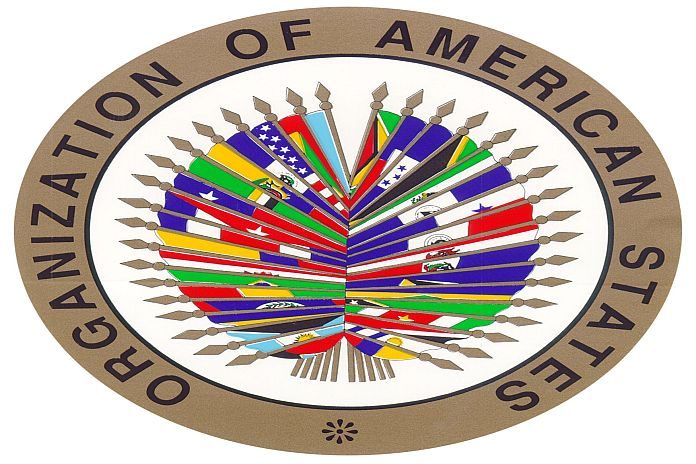WASHINGTON, USA — High ministerial authorities of the countries that make up the Regional Integral Framework for Protection and Solutions (MIRPS) on Friday, adopted the “Political Declaration of Mexico City,” which reinforces the commitment of Central American countries and Mexico to protect and generate solutions for people and populations affected by forced displacement in the subregion in a comprehensive and regional manner.
The statement was adopted under the auspices of the Organization of American States (OAS) and the United Nations High Commissioner for Refugees (UNHCR) as the MIRPS technical secretariat, and the leadership of the MIRPS pro tempore presidency, currently held by the government of Mexico.
The Declaration of Mexico City, adopted during the second annual meeting of the Regional Integral Framework for Protection and Solutions (MIRPS) held in Mexico City, commits the signatory countries – Belize, Costa Rica, El Salvador, Guatemala, Honduras, Mexico and Panama – to promote a coordinated regional response to the phenomenon of forced displacement in the region in the short, medium and long term, through the following concrete alternatives:
- Promotion of complementary activities and actions, including investments, in accordance with the capacity of each country, for prevention, protection and immediate assistance for the benefit of the most affected communities, as well as through the establishment of public policies and other instruments that facilitate the processes of return and reintegration of displaced and returned populations to their communities of origin;
- Access to the territory and fair and efficient procedures for the determination of refugee status in all States Parties;
- The strengthening of national institutions responsible for the procedures for determining refugee status by improving their technical capabilities and increasing financial resources, in accordance with the capacity of each member country;
- Short-term solutions for people in need of protection, such as internal relocation and family reunification; and medium and long-term solutions such as: consolidation of national institutions in terms of protection, assistance and integration, and strengthening the rule of law;
- In accordance with the internal regulations of each country and as necessary, the creation of programs or projects to facilitate access to the labor market in the MIRPS countries to achieve self-sufficiency in decent work conditions;
- The strengthening at the national and regional level of existing mechanisms and measures to combat the smuggling of migrants and trafficking in persons;
- Receiving persons returned or deported to their countries of origin in decent and safe conditions; as well as the socio-economic reintegration of those with needs for protection, which must be identified.
These actions, the countries highlight, will require the support of the OAS, UNHCR, other United Nations agencies, as well as other countries – including the support platform Countries Friends of the MIRPS – in order to give continuity to the progress made, ongoing initiatives and plans.
In the Declaration, countries also urge the OAS to continue working for the establishment and operation of the MIRPS Voluntary Fund, in accordance with the provisions of the OAS general assembly.
The head of the Mexican Commission for Assistance to Refugees (COMAR), Andrés Ramírez, who currently heads the Pro Tempore presidency of MIRPS, stressed that “the creation of the Pro-tempore presidency for the management of MIRPS was an essential step.
It constitutes a political and sovereign body to promote the articulation of coordinated responses and shared responsibility towards human mobility in search of international protection and forced displacement in Central America and Mexico. ” This statement, Ramírez adds, shows the period of the presidency of Mexico, during which a work plan was designed and implemented and coordination between MIRPS countries and other relevant partners was facilitated.
For her part, the UNHCR deputy high commissioner for refugees, Kelly Clements, emphasized that “this type of joint and state-led approach is now necessary more than ever, in a context in which a record number of 70.8 million people have been forced to leave their homes.
This region is not exempt from this reality. We can and should do much more to resolve and prevent conflicts if we want to reverse this tragic trend. The MIRPS is one of the outstanding examples of how to implement the Global Compact on refugees, which calls on states to address forced displacement through comprehensive response frameworks, forged in national action plans developed by various actors and incorporated into regional approaches.”
The secretary for access to rights and equity of the OAS, Gastão Alves de Toledo, reaffirmed “the importance of strengthening multilateralism, through the involvement and leadership of States, both nationally and locally; in conjunction with the people and populations that have been forced to move, host communities, civil society organizations, international organizations such as the OAS and UNHCR, academia, the private sector, and donors.” He added that “at the OAS we are available to all actors to work together in this effort, an effort that can save lives and improve the living conditions of many of the people living in our region.”
The II annual meeting of the MIRPS was held weeks before the World Forum on Refugees is held in Geneva, Switzerland, on December 17 and 18, 2019.
At that event, the MIRPS will participate by calling attention to the urgent needs for support that countries have in response to the complex situation of forced displacement in Central America and Mexico. The MIRPS countries will bring to Geneva a quantification report, an exercise in which they highlight the investment that countries have made in response to forced displacement, and the priorities that require support from the international community.





